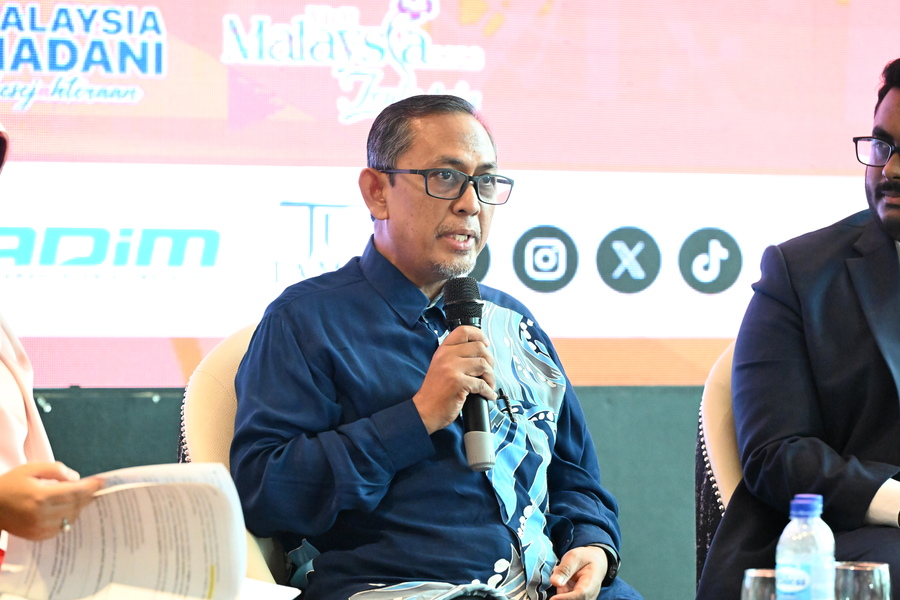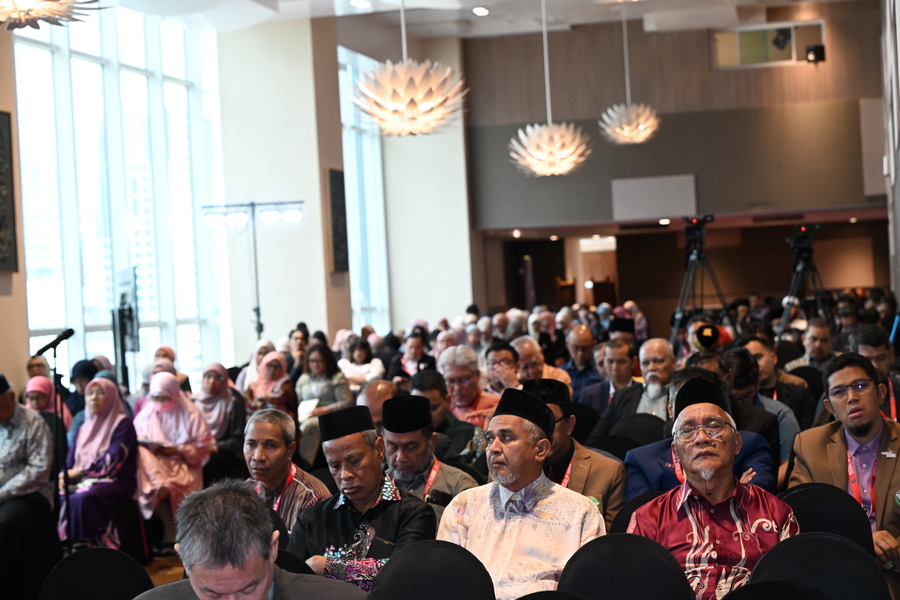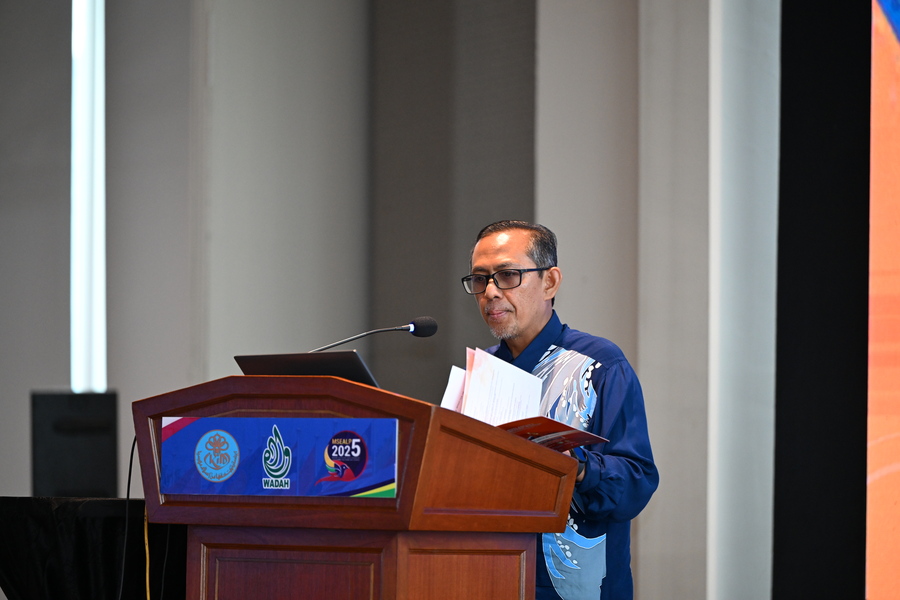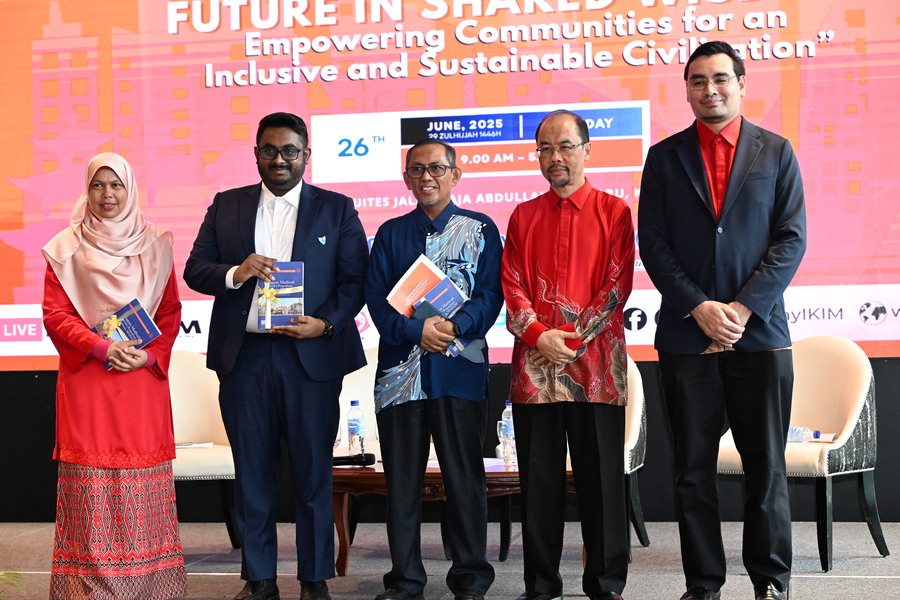
Kuala Lumpur, 26 June 2025 – Prof. Dato’ Dr. Mohamad Fauzan Noordin, Vice President of Wadah Pencerdasan Umat Malaysia (WADAH) and Deputy Rector (Student Development and Community Engagement) of the International Islamic University Malaysia (IIUM), delivered a thought-provoking presentation during the second forum of the Anchoring ASEAN’s Future in Shared Wisdom: Empowering Communities for an Inclusive & Sustainable Civilization symposium.
Speaking under the forum’s theme, “Religions and Traditional Wisdom as a Source for Socio-Cultural Renewal in ASEAN”, Prof. Fauzan explored the intersection of social media culture, the Quranic guidance from Surah al-Hujurat, and contemporary socio-cultural challenges in the region.


Prof. Fauzan introduced the metaphor of “satay culture” to describe a harmful communication pattern—where people ‘marinate’ and ‘spice up’ information with falsehood, exaggeration, and malice before spreading it, much like preparing satay with an array of flavours. This, he said, mirrors how rumours, slander, and sensationalism often dominate online discourse.
He warned that social media, while connecting people across borders, can also fragment societies and accelerate the spread of misinformation. Citing research from MIT, he noted that fake news travels six times faster than the truth—possibly even more rapidly in Malaysia.
Calling it a “digital drug,” Prof. Fauzan said social media platforms are deliberately engineered with input from psychologists to maximise user addiction, leading to heightened anxiety, depression, and societal division.
Drawing from Surah al-Hujurat, which contains 18 verses, Prof. Fauzan presented 17 moral and ethical principles relevant to responsible digital engagement. He began with the concept of taqwa or God-consciousness, which he stressed applies not only to Muslims but to all people who value moral integrity. From there, he emphasised the importance of humility before God, speaking with respect, and practising patience in interactions—both online and offline. He called on individuals to verify information before sharing it, to seek peace rather than escalate conflicts, and to act fairly in all dealings.

He also cautioned against ridiculing, defaming, or insulting others, urging the audience to avoid unfounded suspicion, spying, or secretly sharing private content. Backbiting, he reminded, is also condemned. Surah al-Hujurat, he explained, teaches that human diversity—being created as male and female, in nations and tribes—is meant for mutual understanding, not hostility. He warned against self-glorification and arrogance, stressing that only God truly knows all that is said and done, both publicly and in secret.
In addition, Prof. Fauzan highlighted the need to distinguish between mere data, information, and true knowledge, noting that much of what circulates online is not knowledge at all. The highest aim, he said, is wisdom—building a society, economy, and technology guided by moral insight and ethical values.
Prof. Fauzan stressed the importance of philosophical foundations in engaging with technology, including AI. He rejected both extreme positions—those who wholly condemn AI as harmful and those who embrace it uncritically—advocating instead for a balanced, wisdom-guided approach starting from early education.
He likened human morality to “heartware,” noting that even the most advanced hardware and software become corrupt if the human heart is corrupted. “Clean the heartware,” he urged, “and technology will be used for the greater good.”
Concluding his talk, Prof. Fauzan reminded the audience that the first divine command in Islam is to “Read, in the name of your Lord,” underscoring that knowledge must be grounded in ethical and spiritual consciousness. Whether in using social media, AI, or any modern technology, wisdom and moral integrity must remain the guiding principles.
